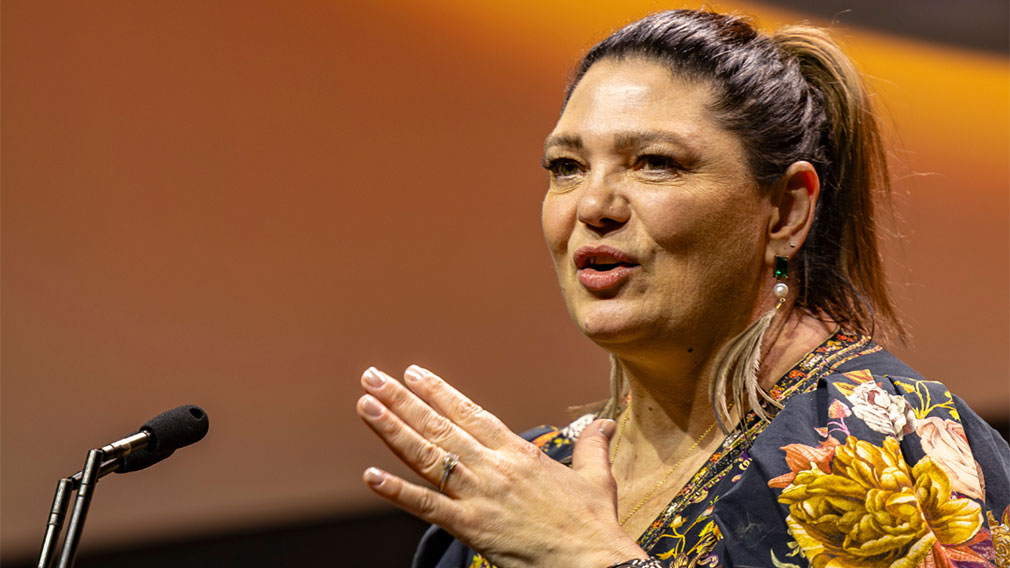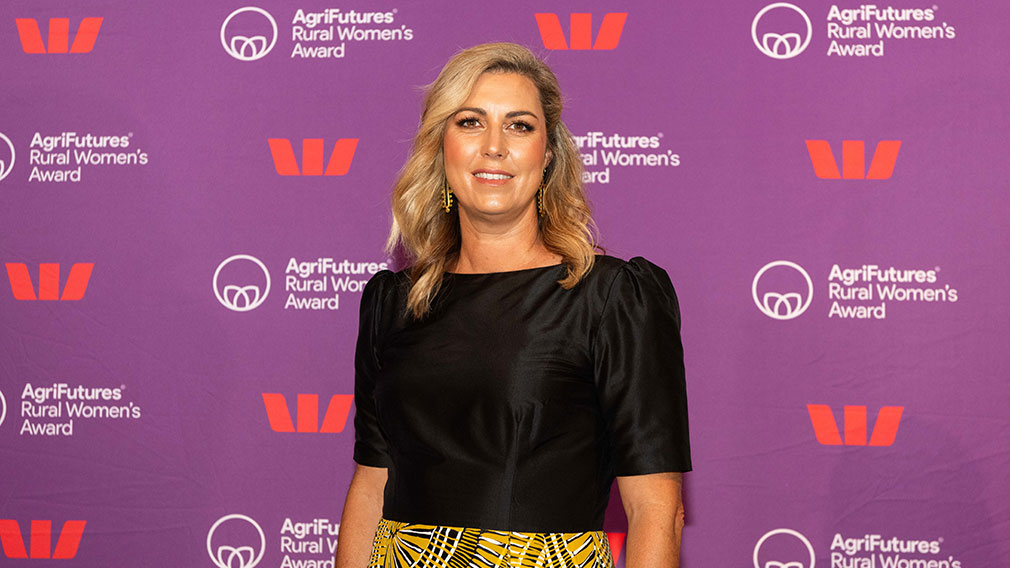Fresh career, same Indigenous ambition
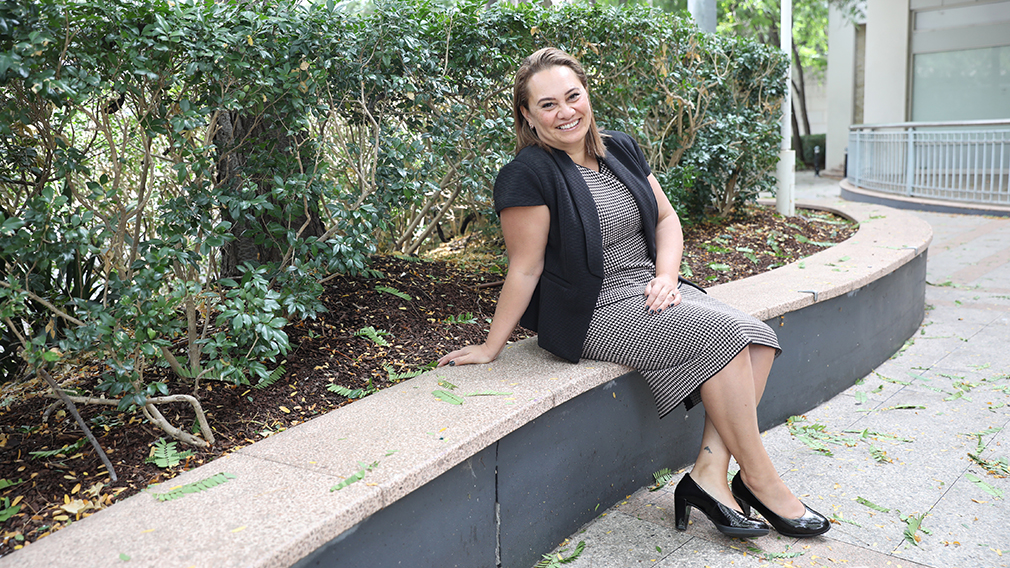
Trish Oxford, who joined Westpac’s Equilibrium Program to attract senior women from non-financial services sectors. (Emma Foster)
When Trish Oxford started mulling a career change after more than 20 years in the public service, she didn’t envisage finding her calling in the finance sector.
“I’ve spent most of my career working for services focused on vulnerable people, starting at the frontline in child protection,” says Oxford, a descendent of the Ngemba people in remote North Western New South Wales.
“When I challenged myself to think about how I could create more impact for Indigenous people, I knew focusing on human services and the welfare sector wasn’t enough for me anymore. I wanted to look at that next stage of enabling people to take full control of their own lives.”
After running her eye over career options and being surprised by the number of initiatives across the finance sector aimed at empowering Indigenous Australians, Oxford’s interest in banking grew. The former acting chief of the NSW Aboriginal Housing Office made the leap when she was one of five, and the first Indigenous participant, selected for Westpac's Equilibrium program to attract senior women from non-financial services sectors.
Five months into the year-long program, Oxford says she’s excited about working in a different setting, with ongoing opportunities to influence positive change for Indigenous people, an ambition inspired by her upbringing.
Soon after her birth Oxford, whose biological family lives in Bourke, was adopted by a family in the Blue Mountains as the youngest of nine adopted children – four Indigenous, the rest non-Indigenous – along with other foster kids who came and went.
“My mum just couldn't say no! We lived in a very, very small house with lots and lots of children!”
Reflecting back, she acknowledges her childhood could have been “very different” had she cycled through the child protection system, in contrast to the stability her adopted family provided through school and university.
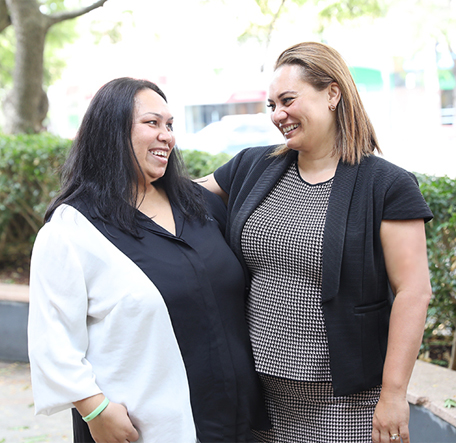
Trish Oxford (right) says bank trainee Terri-Leigh Dixon (left) has the “most powerful story” she’s yet come across at the bank. (Emma Foster)
Following her first few months in corporate Australia fresh from the state government department she’d spent the last 15 years, Oxford believes big business is “definitely on the right track” in playing its role to empower Indigenous Australians. But she says more “buy-in” is needed from corporate leaders, along with more Indigenous people in senior leadership roles.
“Having more Indigenous leaders could really shift the dial. They’re usually closer to the issues and bring invaluable insight, they’re more likely to hire other Indigenous people and act as role models for younger colleagues,” says Oxford.
She believes this could help pick up the pace of the government’s Closing the Gap strategy which is “still so far behind where we need to be”. The most recent report shows only two of seven targets set a decade ago are on track, prompting the government to announce it would reset targets this year.
“My experience tells me that creating opportunities to build capability and supporting self-dependency over welfare is what it will take,” Oxford says.
She came across a powerful example in the first few weeks at the bank when she met Terri-Leigh Dixon, a 27-year-old bank trainee at St.George Bank’s Penrith branch.
As the first member of her family to have a permanent job, she says Dixon never had role models at home and just to get into work every day is a struggle for her. In the eight years since leaving school during year 11, Dixon has had a couple of short-term jobs, but family commitments have meant the resident of Shalvey in Sydney’s western suburbs has spent more time out of work than in it.
Like Oxford, Dixon never pictured herself working for a bank and recalls the first couple of days of her traineeship as terrifying. Yet she is “really blossoming” according to Oxford and flying through her modules to get her banking qualifications.
“A few of my cousins and people I grew up with in the area, they come in and they’re shocked when they see me sitting here,” says Dixon. “It’s a big deal. They're surprised there’s an Indigenous person sitting at the counter.”
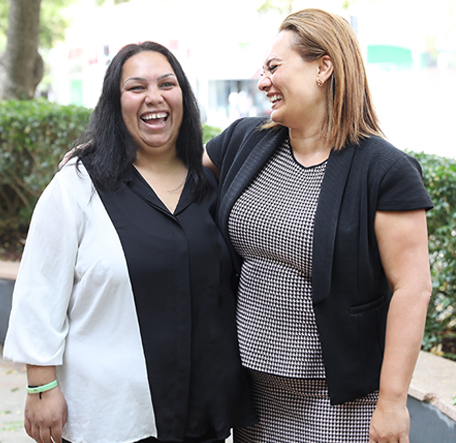
Terri-Leigh Dixon and Trish Oxford have regular mentoring sessions. (Emma Foster)
While Dixon concedes she often has to “block out all the situations going on at home” to focus at work, support from colleagues like branch manager Roslyn Chand and mentoring from Oxford – something the pair committed to as soon as they met – has helped accelerate her progress. And she’s already seeing ripple effects on her family.
“My oldest niece, who is 14, is talking about working in a bank now. She says ‘I want to be like you when I get older, to get a job and have my own place’,” Dixon says.
“It’s still only early days, but I've really got my mind set on this. I’ve already learnt so much being here. I can now see myself having a good career. Hopefully I'll move up after my traineeship and get more experience and keep growing with the company as I grow within myself.”
Having joined Westpac’s Indigenous Advisory Committee, Oxford has discovered many similarly positive stories from initiatives such as microfinance to back Indigenous businesses and governance workshops for Indigenous company boards. There’s also capability transfer programs like Jawun secondments and recruitment schemes including university internships and traineeships with formalised mentoring attached which acknowledge participants are often the first members of families to have jobs in corporate Australia.
While she applauds the significant proportion of employees that identify as Aboriginal and/or Torres Strait Islander across the bank, Oxford says she’s keen to explore how she can support more promotions up through the ranks, along with other customer focused initiatives.


